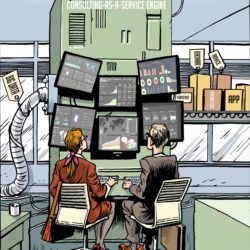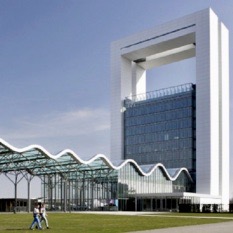Consultants being swept along by wave of digitalization

The digitalization of supply chains is posing new challenges for companies. What possibilities does digitalization offer? Which technologies should they implement? How can they utilize the data they gather to add value? For the answers to these questions, they often turn to consultancy firms. The consultancies themselves are increasingly using new technologies too, to gather and analyse data, to optimize processes and to develop new business models.
By Marcel te Lindert
There are generally two groups of companies. The first group faces strategic issues: how can they better meet their customers’ demands? These companies are forced to critically examine their business models. “In this case, digitalizing supply chains is almost always an important part of the solution,” says Jan Jelle van der Meer, a partner at PA Consulting – an originally British consultancy firm with offices in 13 countries around the world. “More and more companies are also acknowledging the trend towards digitalizing supply chains and want to know how they can take advantage of it. In any case, this is ultimately about the digitalization of supply chains.”
Companies approach consultancies with questions about things like the Internet of Things (IoT), artificial intelligence (AI), cyber robotics and blockchain. Businesses are aware that they need to work with these technologies, but where should they start? “They’re looking for ways to apply the technologies in their own context,” comments Sander Feenstra, a supply chain strategy consultant at Deloitte.
Jack of all trades
When choosing a consultancy, businesses are paying more and more attention to their areas of competence, according to Ingenics, a consultancy firm originating in Germany that specializes in logistics, manufacturing and digitalization. “Companies want a single partner to guide them through the whole process – from planning to implementation. They are looking for a partner that supports them in strategy development, operational processes and the implementation of IT solutions,” says Maj-Britt Pohlmann, associate partner at Ingenics and manager of the transport and logistics-related activities. She comes across many companies that need to adapt their business models.
“A consultant has to facilitate the transformation process. They should not only be able to draw up a roadmap, but must also have change management skills. Today’s ideal consultant is well-versed in strategy, processes, IT and change management. Everyone is looking for a ‘jack of all trades’, or at the very least a consultant with a combination of knowledge in several different domains. It is therefore important that consultants are willing to work on their continuous professional development.”
… … …
Want to read more?
Subscribe on tablet to read the full version >>
or
Subscribe on print to receive the next issue >>
This article was first published in Supply Chain Movement 28 | Q1 – 2018










